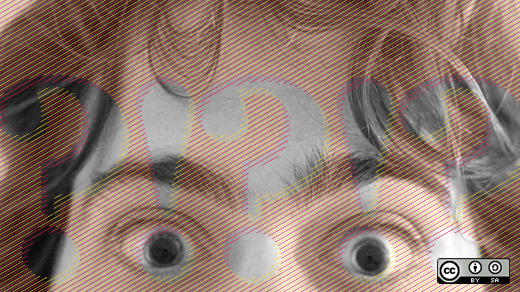Professor Jones seems to have struck a chord with his attempt to abandon email. Since we published our look at his #noemail attempt and sat down for a chat, he’s been interviewed, referenced, and talked about all over the Internet--and even on the (local) nightly news. Other people have followed suit (knowingly or not), and some of the people who influenced Jones are continuing to promote a move towards a different kind of social communication (like, say, IBM or all this talk about Google+).
Even we were pretty surprised--the response to the piece we ran was pretty impressive all by itself. And the numbers from the poll seem to suggest that lots of you out there would like to ditch your inbox, even if you don’t think you could actually do it.
So how is Jones faring? Has he cheated and sneaked some email on the side? Have his detractors softened their stance? He was gracious enough to let us ask a few more questions and give his updated report on life with #noemail.
OSDC: So, you really did it? Really really, and you’re not sneaking emails in the middle of the night when your wife is asleep? (With the exception, of course, that you’ve already mentioned--your son, who is abroad for a while, can best reach you by email.)
Paul Jones (PJ): Tucker [Professor Jones' son] will be in Serbia starting in August, but the email that I did read since June 1 was from his college and about his planned travels. I’ve had much less email from that than I had anticipated. So no reading email at all.
Nada.
OSDC: Have there been any surprises?
PJ: Probably the biggest surprise--and looking back, I shouldn’t have been surprised--is that people with strong technical backgrounds somehow think that email is private and secure. Or even more amazing, that they can control their email because they control a server or two.
Why was I surprised? When I was promoting email in the 80s, I often had to warn, alert, and otherwise caution people that email was more postcard than mail in an envelope. Once sent, there were (and still are) numerous ways for the letter to be purloined, copied, inspected, and shared--and since then, also data-mined.
I don’t let social media off the hook on privacy and security, but I can’t see how anyone with tech-fu could say that email that passed through several hands--none of them trust-verified or ultimately accountable--is any better.
I should have remembered Upton Sinclair’s quip: “It is difficult to get a man to understand something when his salary depends upon his not understanding it.”
OSDC: The introduction of Google+ seems to have been pretty timely for you. I know you mentioned (in a blog post) that you believed modern web infrastructure like HTML5 and JSON would bring us something more useful--is Google+ that tool? You say that it’s better than email--how much better? Or is it too soon to tell?
PJ: Less than three weeks into G+ and I’m still impressed. There is much to be done to make me completely satisfied--public Circles and a good search-able archive for starters--but G+ and its total integration (also continuing) into the Google-verse goes a long way toward what I was asking for when I started #noemail.
Really, I had also expected more from Facebook after Sheryl Sandberg’s talk a year ago at Nielsen Consumer 360. I had also expected more from Diaspora, Twitter, and even from Microsoft (after acquiring Skype). None of those players have done much--especially compared to G+.
Google’s Takeout and their Data Liberation Project are also impressive compared to their competitors.
OSDC: What advice do you have for someone considering making the #noemail move?
PJ: Interesting that you should ask, I just made a blog post yesterday that lists advice for folks who would like to move up the technology food chain to #noemail.
OSDC: What’s next? Are you trying to hold off the haters? Make nice with the media? Where should we look for this story to go from here?
PJ: Interesting that saying that I’m not doing something--email--gets more attention than saying that I will reply exclusively on social media alternatives. What #noemail is really about is exploring alternatives of active social engagement, integrated but faceted communications streams, video inclusion, and collaborative technologies. I’m constantly looking for better ways to do things.
One thing we’re interested in here at ibiblio.org is to expand and improve the way that larger open data can be shared. Ibiblio torrents, which is working now, are part of our work in that direction. And I hope we can talk more about the ibiblio DataHub project here at Opensource.com soon.
OSDC: A hearty thanks to Professor Jones for taking the time out to talk to us, and for all his thoughtful responses. You can continue following his #noemail tales on his blog.
PJ: My pleasure entirely.
(Don't miss our previous coverage of Jones' experiment, including our interview.)




8 Comments